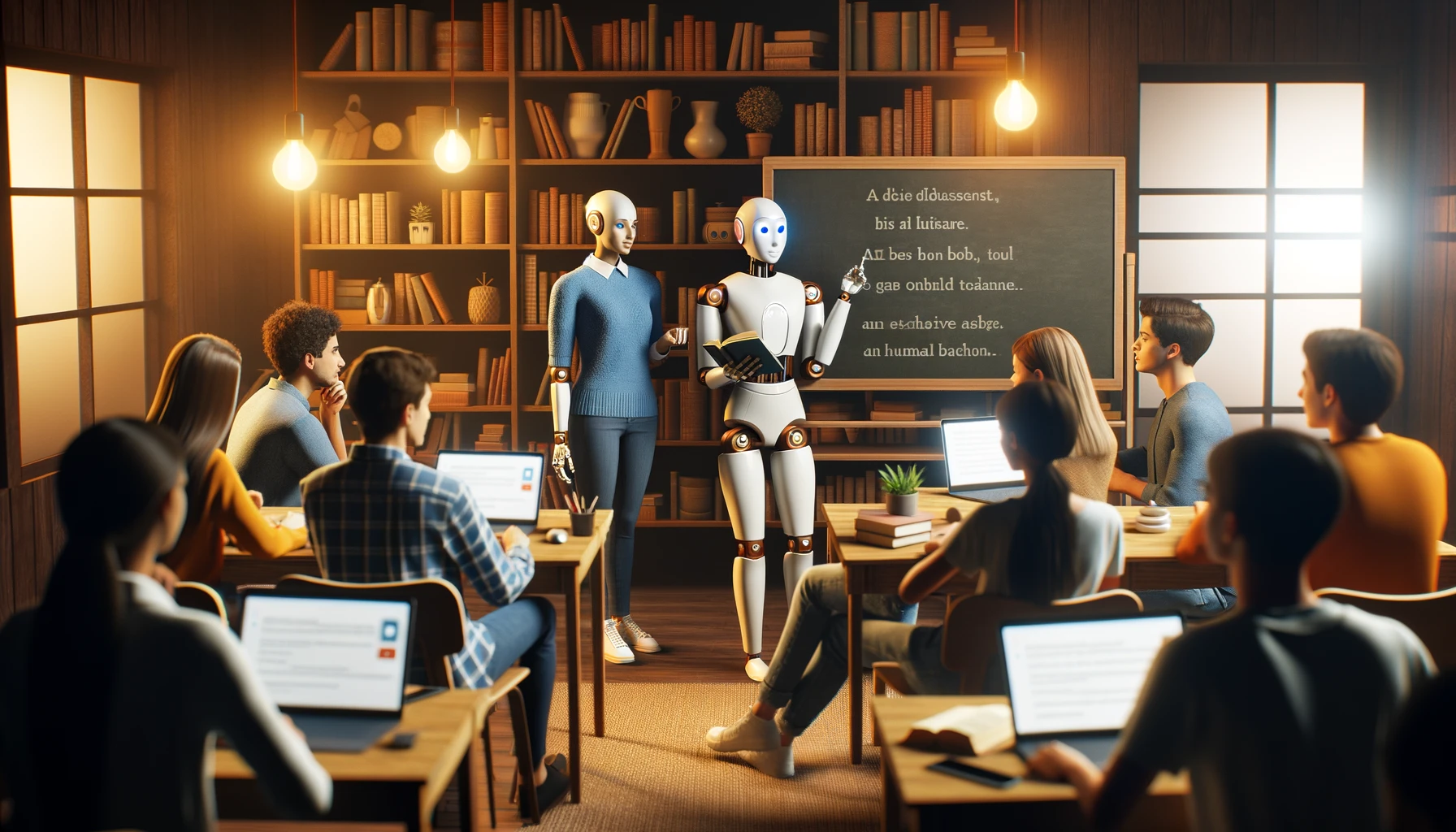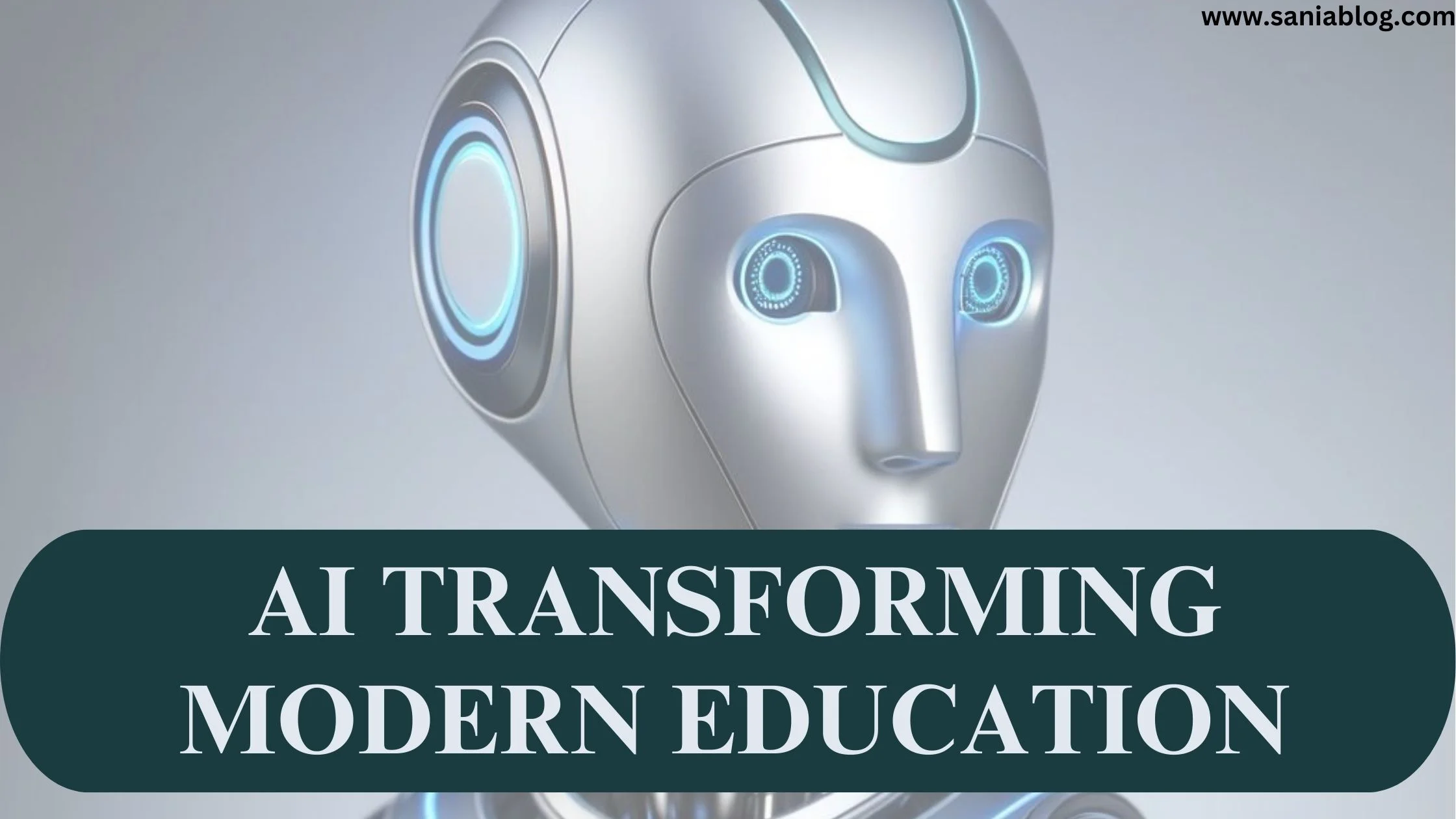Introduction
In the fast-evolving landscape of technology, Artificial Intelligence (AI) has emerged as a revolutionary force across numerous sectors, education being one of the most significant. AI Transforming Modern Education, enhances and personalizes learning experiences and offers unique opportunities and challenges in educational settings.
Historical Context
AI’s integration into educational tools is not a new phenomenon. The journey began several decades ago with simple computer-aided instruction systems. Over the years, the sophistication of AI applications in education has grown, paralleling advancements in AI technology itself.
Current Applications of AI in Education
Personalized Learning Environments
AI systems today excel in creating personalized learning experiences. Tools like adaptive learning software analyze student performance in real time, adjusting the difficulty of tasks and the pace of instruction to suit individual learning styles and needs. This personalized approach helps in catering to the diverse abilities of students, making learning more inclusive.
Automated Grading Systems
The deployment of AI in automated grading has transformed how educators allocate their time, allowing them to focus more on in-class activities and less on grading. AI algorithms can now reliably grade essays and complex responses, providing not only scores but also feedback for improvement.
AI-driven Tutoring and Assistance
AI-driven tutoring systems such as chatbots and virtual tutors have become increasingly sophisticated, and capable of addressing a wide range of subjects effectively. These systems use natural language processing to understand and respond to student inquiries, making supplementary education more accessible.
Virtual Reality (VR) and Augmented Reality (AR) in Classrooms
VR and AR technologies, powered by AI, are beginning to make their mark in educational settings. These technologies provide immersive learning experiences that are engaging and effective, particularly in scientific and historical education, by simulating environments and historical events.
READ ALSO: Improving English Writing Skills Online
Benefits of AI in Education
Customization of Learning
AI’s ability to facilitate a tailored educational experience is particularly transformative. By analyzing vast amounts of data on student learning habits, preferences, and performance, AI can create highly individualized learning plans. These plans not only adapt to the academic level of each student but also accommodate different learning styles and speeds. For instance, students who learn better through visual means might receive more infographic-based content, while those who excel through reading might be given more detailed textual information. This level of customization can dramatically increase student engagement and improve learning outcomes.
Accessibility
AI also plays a crucial role in making education more accessible to students with disabilities. Tools such as voice-to-text transcription services, reading assistants, and customized learning interfaces are just a few examples of how AI supports diverse learning needs. For students with visual impairments, AI-driven applications can convert written text into speech, and for those with hearing impairments, speech can be turned into text. Such technologies not only help in overcoming barriers to learning but also foster a more inclusive educational environment.
Administrative Efficiency
The automation of routine tasks is another significant advantage of integrating AI in education. By taking over administrative duties such as tracking attendance, managing student records, and grading assignments, AI frees up teachers’ time and energy. This shift allows educators to devote more attention to the pedagogical aspects of teaching, such as developing innovative teaching methods and providing one-on-one support to students. Moreover, AI can streamline communication between different stakeholders in the educational process—teachers, students, parents, and administrators—making the system more efficient and responsive.

Enhanced Feedback Mechanisms
AI technologies provide immediate and personalized feedback to students, which is vital for learning and improvement. AI systems can analyze the answers provided by students in real time and offer constructive feedback, not just in terms of correctness but also in suggesting ways to approach problems differently. This instant feedback loop helps students understand their mistakes and learn from them promptly, fostering a more dynamic learning environment.
Scalability of Learning Resources
AI can extend the reach of educational resources far beyond traditional classroom boundaries. Online platforms powered by AI can accommodate thousands of students simultaneously, providing quality education regardless of geographical constraints. This scalability is particularly important in developing countries and remote areas, where educational resources are often scarce.
Facilitating Lifelong Learning
AI supports not just formal education but also lifelong learning. With the proliferation of AI-powered online courses and workshops, individuals can continue learning new skills and knowledge throughout their lives, according to their schedules and needs. This aspect of AI is essential in today’s rapidly changing world, where continuous education is crucial for both personal and professional development.
Challenges and Considerations
Ethical Concerns
One of the foremost ethical considerations in the application of AI in education is algorithmic bias. AI systems are only as unbiased as the data they are trained on, and historical data can often reflect existing prejudices. This poses a risk of perpetuating stereotypes and inequalities in educational outcomes. To counter this, continuous oversight and refinement of AI models are essential to ensure fairness and accuracy in student assessments.
Data Privacy
The increasing integration of AI in education also brings significant data privacy issues to the forefront. Educational institutions collect sensitive information, and the use of AI tools that analyze this data must be governed by strict privacy regulations. Ensuring that data collection and processing are transparent and secure is paramount to maintaining the trust of students and their families.
Technology Dependence
Heavy reliance on AI technologies can also lead to disparities in educational access. Schools in regions with limited technological infrastructure may find it challenging to implement AI solutions effectively. Furthermore, over-dependence on technology could diminish the role of human teachers, affecting areas like emotional support and behavioral guidance that AI cannot replicate.
Future Trends and Predictions
Integration with Other Technologies
Looking ahead, AI is set to become more integrated with other technological advancements such as the Internet of Things (IoT) and blockchain. This could lead to more interconnected and comprehensive educational ecosystems where learning experiences are seamlessly shared across platforms and institutions. For example, blockchain could be used to securely store and share educational achievements, while IoT devices could enhance classroom learning through interactive and connected tools.
Policy and Educational Reforms
As AI becomes more embedded in education, there will be a growing need for policy reforms that address both the opportunities and challenges posed by AI technologies. This includes updating curricula to include AI literacy, ensuring equitable access to AI tools, and creating guidelines for the ethical use of AI Transforming Modern Education.
Long-term Impacts on Educational Systems
In the long run, AI has the potential to fundamentally reshape educational systems. It could lead to a shift towards more competency-based education models, where students progress based on their ability to master skills at their own pace, rather than through traditional age-based progression. Additionally, AI could help in identifying and nurturing individual talents at an early stage, leading to more personalized career guidance and development.
Conclusion
As AI continues to evolve, its integration into education will undoubtedly expand, bringing transformative changes to teaching and learning practices. While these presents exciting possibilities, it also requires careful consideration of the ethical, privacy, and access issues that accompany technological adoption. Educators, policymakers, and technology experts must work together to harness the benefits of AI while mitigating its risks. Embracing AI Transforming Modern Education not only involves technological implementation but also a cultural shift towards embracing new methods of teaching and learning that can prepare students for a future where AI is ubiquitous.
This extended portion of the article further explores the complexities of AI in education, emphasizing both the transformative potential and the challenges that need addressing. For a complete article, you would continue to elaborate on these themes, providing real-world examples, case studies, and expert opinions to enrich the content and engage the reader more deeply.
